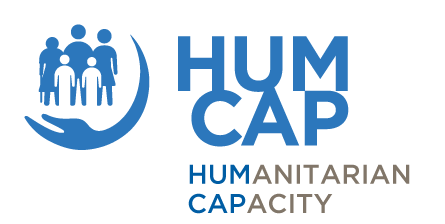Understanding and Applying CP Core Concepts
Child Protection in Humanitarian Assistance
Globally 1 in every 70 people around the world is currently caught up in a crisis. Children who constitute just under half the affected population are particularly vulnerable in these situations. The impacts of crises are not only felt immediately by children but can have long lasting effects over the course of their lifetime and into the next generation. While death, injuries, separation from their families, recruitment by armed forces or armed groups, child labor, sexual violence and other types of abuse and exploitation are only some of the risks that boys and girls face in humanitarian situations around the world, protecting them from violence, abuse and neglect is an urgent priority for all humanitarian personnel. This requires a wide set of key skills and technical competencies. This course provides the most evidence-based understandings of the impact of crises on children’s wellbeing and development and analyzes interventions that support affected children. It also provides space for critical reflection on how current interventions can be strengthened. This course stems from a keen appreciation of the complexity of child protection in humanitarian settings. Indeed, it’s important to acknowledge that historically, humanitarian child protection has been very focused on responding to harms and to protection issues when they’ve already happened. These reactive programs are absolutely fundamental to the work to provide a response to children, but this course also focuses on the many preventive actions that we can take. Finally, the course preferred to use the expression “Humanitarian Action”, because we will discuss emerging practices elaborated in situations where the context itself is not considered an emergency, but the child or the family that has been displaced or forced to leave for whatever reason, has ended up in that context.
This 5-days course aims to provide basics and key child protection concepts and skills relevant to practitioners or project managers working in humanitarian settings , it lays the foundation for child protection advanced training.
Who is this course for?
This training is addressed to all professionals, who:
• Are working or planning to work in humanitarian contexts and/or in the area of child protection and child protection in humanitarian settings in the role of practitioners or project managers;
• Are interested in acquiring a good understanding of key CP principles, concepts and operational approaches and learn how to set-up, implement and monitor and evaluate a CP project in partnership with all relevant stakeholders in humanitarian settings;
• Want to be equipped with an extensive set of key skills, competence and tools to assess, identify and respond to individual cases of at-risk children as well as promoting preventive actions.
Course content and aim
• The course content provides basics and key child protection concepts and skills relevant to humanitarian settings, it lays the foundation for advanced training that participants can attend in the next future.
• Being a child protection practitioner requires continual learning and development. This training wishes to be a reference point for understanding child protection and wellbeing. There are skills and competencies relevant to particular roles and responsibilities working in the field of child protection that will need to be addressed with future training.
• This training is to be considered at entry-level.
Upon successful completion of this course, participants will:
• Be familiar with the CP legal framework, inter-agency coordination requirements and key global guiding documents and instruments, and be able to apply key CP core principles and standards;
• Define child protection and explain different types of child abuse, child development stages and the active role of child agency, caregivers and communities to support and protect children;
• Describe the impact of a humanitarian crisis on children wellbeing and caregivers capacity and ability in protecting and caring for children;
• Identify and assess children’s specific vulnerabilities/ at-risk groups, along risks and protective factors to consider in child protection programming;
• Explain the fundamental steps of case management and its relevance to child protection programming when addressing and responding to child protection concerns;
• Describe how to develop and implement a principled and quality CP programme in all its components, including identifying and assessing key needs, setting priorities and solid outcomes and monitoring the response according to CPMS.
Methodology
The training will be in presence and delivered in 5 days. It will use interactive methodologies and multimedia tools, it will provide theories but also opportunities to practice through and discuss through group work sessions, case studies and role plays. The participants will be provided with a learning package at the end of the course and pre-lecture readings.
At the end of the training participants that have successfully completed the course will be ensured a digital badge through the international platform HPASS (www.hpass.org).
RECOMMENDED PRE-COURSE READING AND LEARNING
Pre-reading material will be provided before the training jointly with the final agenda.
Date:
Planned for June 2024
Duration:
5 days – in presence
Venue:
RIMINI – Italy
Cost:
Full rate 950 €. Early Bird rate 800 €. Multiple subscriptions can request further 10% discount on the rate.
Language:
English

